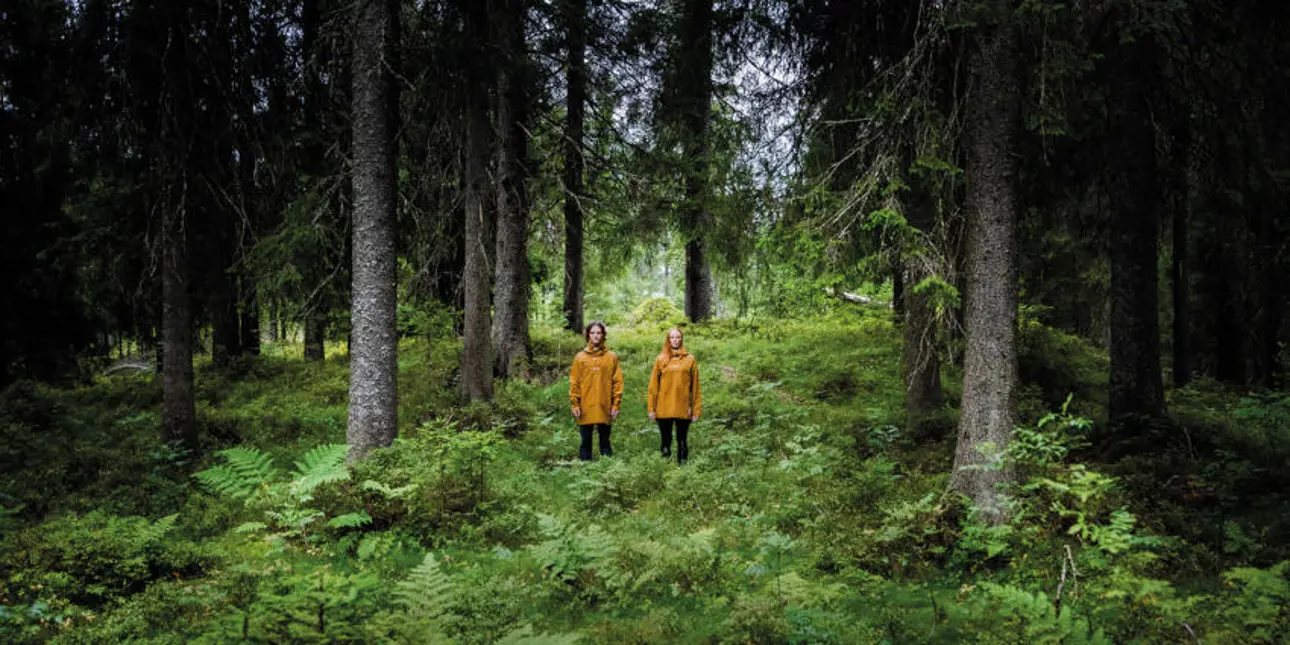Pioneering sustainable wood-based Spinnova® fiber production
Jun 26, 2024
Spinnova’s mission is to transform the global textile production and raw material base to make it more sustainable. To make this happen Spinnova has joined forces with Suzano through their Woodspin project, which aims to produce sustainable textile fibers from wood without using harmful chemicals.

Woodspin’s first commercial production line investment in Jyväskylä, Finland started up in 2023, and Valmet delivered the cutting-edge drying technology for the unique process. Valmet has also delivered refiner technology for Suzano’s MFC process. Spinnova’s ambition is to sell spinning technology, leading to one million tons of annual textile fiber production capacity built by Spinnova’s customers or through its own investments in the future.
Redefining the textile manufacturing landscape
Spinnova’s textile manufacturing process is groundbreaking. It requires no dissolving, no harmful chemicals, no sidestreams, close to zero water use, and minimal CO2 emissions. “The idea came when I attended a very interesting lecture at the University of Oxford, where Professor Fritz Vollrath explained the similarities of flow between spider silk protein and wood-based nanocellulose. That’s when I got the idea that maybe we could produce textile fibers directly from wood fibers,” Juha Salmela, CTO at Spinnova, summarizes how the idea came about. He continues: “Spinnova’s technology is based on a mechanical way of creating textile fiber out of wood or waste materials. We can create the Spinnova fiber from sustainable FSC®-certified eucalyptus pulp or waste materials like leather, agricultural, or textile waste. The main difference compared to other cellulose-based textile fibers is that our process doesn’t use dissolving or harmful chemicals.”

“Spinnova’s fiber production doesn’t involve any harmful chemicals or dissolving. It also uses FSC®-certified eucalyptus pulp, meaning our environmental impact is very low: CO2 emissions are extremely low, and water use is 98 percent less than in traditional cotton production. Our process doesn’t produce any wastewater, so the material efficiency is very close to 100 percent,” says Juha Salmela, CTO at Spinnova. “My background is at Valmet, so working with Valmet’s experts was easy. We’ve enjoyed close cooperation with Valmet, and they’ve played an active role in brainstorming and developing with us,” says Mikko Kautto, Project Manager at Spinnova.
We needed two things to achieve our targets: technological innovation and good cooperation with leading companies.
Cutting-edge drying technology
The drying technology Valmet supplied was instrumental in achieving the ambitious targets in Woodspin’s investment. The delivery also included technologies for heat recovery. “Valmet is a leader in innovations for sustainable and energy-efficient drying technologies. Many of Spinnova’s people have a long history of working with Valmet, and our location here in Jyväskylä, where Valmet has a major facility, further improves our collaboration. We needed two things to achieve our targets: technological innovation and good cooperation with leading companies,” says Salmela.
Excellent support and insight along the way
“We’ve enjoyed close cooperation with Valmet, and they’ve played an active role in brainstorming and developing solutions with us. Our cooperation didn’t just include the technology delivery but also joint development. Valmet has an excellent testing, commissioning, and start-up procedure in place and long experience from similar projects,” summarizes Mikko Kautto, Project Manager at Spinnova. “Although geopolitical uncertainties impacted the project and caused some delivery delays, the close cooperation with Valmet helped us react and replan operations to minimize costs and the impact on the schedule.”

Spinnova technology at Woodspin’s factory was developed in close cooperation with Valmet at Valmet’s pilot facility in Jyväskylä, Finland.
Demand for sustainable breakthrough innovations
The Woodspin project is an answer to the textile industry’s need for sustainable transformation. Traditional textile production methods often come with a high environmental cost, and this project addresses the challenge, with a mission to redefine the landscape of textile manufacturing.
“The demand for more sustainable textile fibers and textiles comes from the needs of brands. They want to transform their raw material supply in a much more sustainable direction. This is driving global demand for Spinnova’s technology. We’ve been working with world-class pioneers and iconic brands like H&M, Adidas, and Marimekko to create some very exciting and unique products like hoodies, backpacks, and even skis,” says Salmela. He has this advice for other companies aiming to reduce their environmental footprint: “Innovative technology will provide several solutions for reducing the environmental impact, but don’t forget the product must still maintain its functionalities and performance.”

Spinnova® fiber can be used to manufacture different types of products, including these Bergans Collection of Tomorrow 0.5 anoraks (image credits: Bergans).
Text Marika Mattila
PHOTOS Hannu Korpela, North Arrow Films
